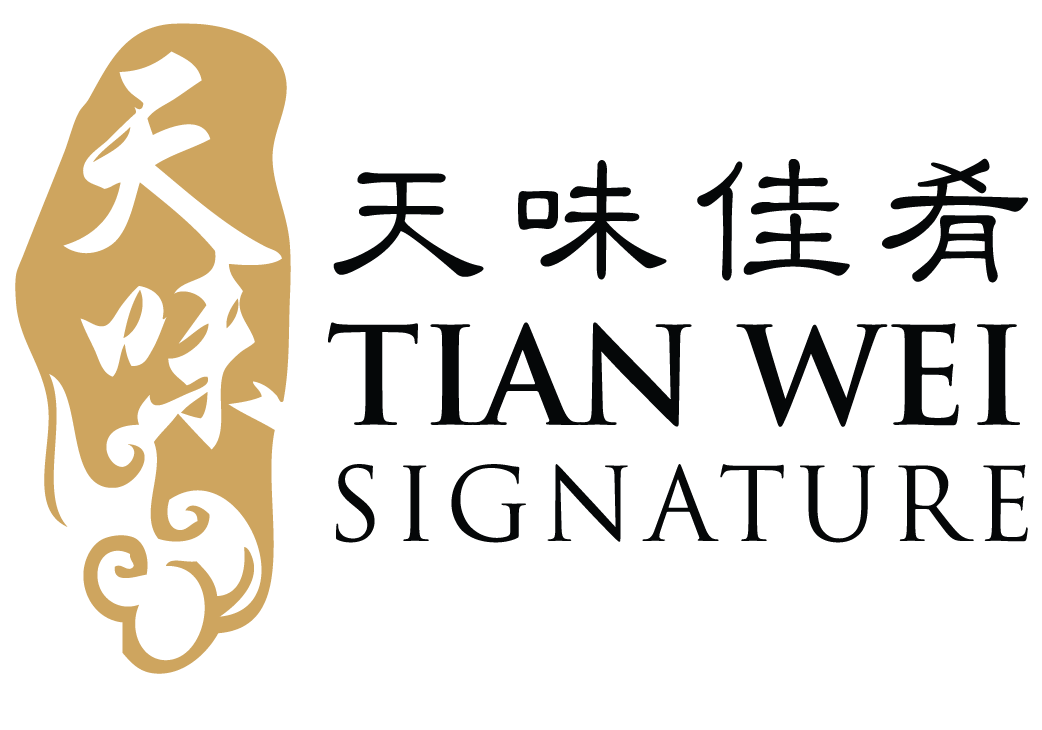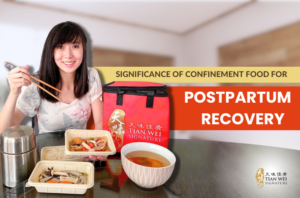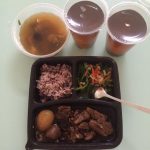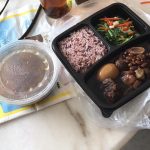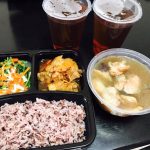81 Tagore Lane, TAG A, #01-11 Singapore 787502 ♦ Reservation : +65 6727 5599
Dietitian Shares: 5 Signs You May Not Be Healing Well

Do you know if you are healing well? Some perineum wounds or cesarean wounds are pretty deep and are a significant concern for many mothers especially when it comes to answering nature’s call to defecate or urinate during this time. The fear every single time is real, and we are all hoping these wounds heal as fast as possible for mummies!
Here are 5 signs that you may not be healing well
- Excessive redness and swelling even after a couple of days
- You’re running a fever
- Prolonged bleeding
- Oozing of pus or liquid
- The pain does not subside even after several weeks
Most of you may have been educated on how to care for these wounds and keep them clean at home but what about nutrition? How does nutrition play a role too in speeding up wound recovery? What is needed in confinement foods? Here’s what you need to know.
Dietary Aspects in Wound Healing
High Protein
If you do not know anything else about nutrition and wound healing, just remember your protein food for confinement! Protein is the backbone and core part of promoting wound healing. You need adequate protein intake to encourage your body with muscle repair. Good sources of protein can be found in chicken, fish, pork, beef, eggs and legumes. A high protein diet for an individual typically looks like a diet that has a fish, chicken or pork that is at least a size and a half of your palm size at every main meal, particularly during lunch and dinner. Besides that, adequate protein intake would easily contribute to adequate Zinc too as animal protein-rich foods are also good sources of Zinc. Zinc is essential in promoting wound healing.
Fruits & Vegetables
Adequate fruits and vegetables are essential during wound healing due to their rich Vitamin C, Vitamin A and Vitamin Bs content. Along with adequate protein and zinc, Vitamin C, A and Bs are essential for wound healing as it helps the body to promote collagen production. Other than that, fruits and vegetables also carry other beneficial antioxidants and anti-inflammatory properties which are helpful in supporting the body’s immune system to regulate and reduce inflammation at the wound sites in order to promote recovery efficiently. These anti-inflammatory properties are also beneficial in supporting the immune system to function optimally so that mothers do not easily fall sick too!
Adequate Carbohydrate
Rice, bread and noodles often get a bad name. It is so sad to see how so many of us have access to so much more information in this day and age about nutrition yet so many more of us are misinformed. There is too much noise and misinformation about nutrition and food in nourishing our bodies in various stages of life. Carbohydrate is essential for postpartum mothers! Without adequate carbohydrate and calorie intake, any of the additional protein intakes you consume would be used to produce energy instead of repairing muscles and supporting wound recovery. Thus, including staples in your meals are important to give you energy so that you can get out of bed, breastfeed if you choose to and have the energy to move about more often. Gradually moving about more often as you recover is more important than you think. This helps you to recover faster, reduces the risk of constipation and also reduces the tendency to experience postpartum blues. Therefore, do not miss out on your carbohydrate intake! If you are concerned with refined carbohydrates due to how they can cause sugar spikes, then choose complex carbohydrates instead! For instance, brown rice, whole wheat bread, brown rice noodles, oats and other whole grains can be beneficial as it has higher fibre content which will help to provide more sustained energy throughout the day without giving you sugar spikes.

Adequate Fluid Intake
As much as possible, we should be ahead of constipation. This is because constipation can cause excessive pressure at wound sites at the perineum or the abdominal area from cesarean section. High pressure in these areas can possibly reopen closed wounds which would be a total nightmare for any mother! Thus, adequate fibre with adequate fluid intake is very important. This is why soups are a big part and a must in confinement catering. It is generally recommended that you have at least 2 litres of fluid intake per day and a little more. You can hydrate yourself with unsweetened red date tea, plain warm water, warm milk, soups or juicy fruits too! Another good tip to help you remember to rehydrate yourself is to have at least a glass of water or a bowl of clear soup after nursing your baby. Fluids will help to soften your stool and make it easier to pass motion without exerting excessive pressure.
Conclusion
In conclusion, proper nutrition is essential for wound healing. A good diet should include adequate protein from animal sources such as chicken, fish, pork and beef to promote muscle repair. Besides that, fruits and vegetables should also be included in the diet to provide the body with Vitamin C, Vitamin A and Bs. Adequate complex carbohydrates should also be consumed, such as brown rice, oats and other whole grains provide sustained energy throughout the day without giving sugar spikes. Last but not least, adequate fluid intake is essential to avoid constipation which can cause excessive pressure at wound sites. With proper nutrition, you can ensure that you heal well!
